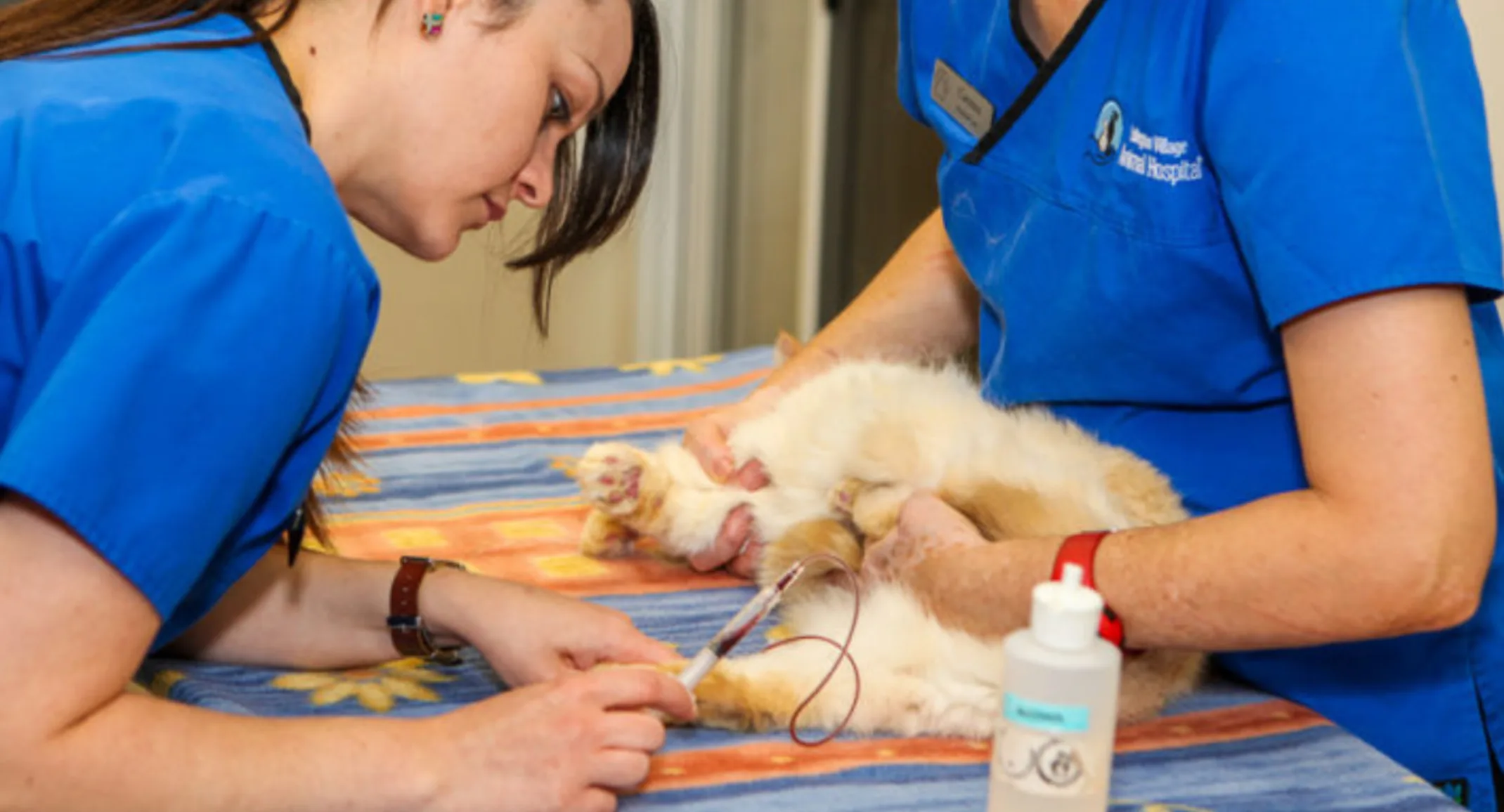Etobicoke Vet Lists 5 Most Common Pet Emergencies
Our beloved pets can’t talk, so as an owner being able to identify illness and getting medical aid for your pet in a timely manner can be a life-saving skill.
Some of the more common emergencies that an Etobicoke vet can see that require immediate medical attention:
A dog that is retching and trying to vomit and little or nothing is coming up. Often there is also a bloated look to the dog’s side, but in some large dogs it may not be obvious. These are signs of a dog who may have a twisted stomach, which is a life-threatening situation if not dealt with quickly;
An animal that is straining to urinate and little or no urine is coming out. This is particularly important in male cats that can get crystals or stones stuck in their urinary tract and get blocked. Again, this will lead to a critical situation if not addressed within a few hours;
Seizures – a dog or cat that experiences more than one seizure in a 24-hour period should seek emergency care. Repeated and prolonged seizures can lead to brain damage or death. Ingestion of toxic substances. For dogs, common toxins include chocolate, grapes or raisins, and xylitol (an artificial sweetener found in chewing gum and other foods). For cats: Tylenol, and lilies. For both species, certain medications, anti-freeze, and rodent poison can be deadly; and
Sudden open-mouth breathing in cats. Cats are notorious for hiding their illness, and when they suddenly start breathing though their mouth this is a sign they are suffering from some type of airway trouble
What are some medical emergencies that may be difficult to identify?
If your pet is suddenly not eating. Cats and dogs that haven’t eaten within 24-48 hours should be considered an emergency and should consult their Etobicoke vet immediately.
Vomiting & Diarrhea should be considered an emergency as well. Prolonged vomiting & diarrhea can lead to serious illnesses and can quickly dehydrate a pet. It is even more critical if the vomit or diarrhea is very bloody;
If your pet is acting painful: some will vocalize, but most do not. Often there are changes in breathing, some might be unwilling to move and some may even show symptoms of aggression. Some pain-related symptoms may also include a hunched back, constant trembling, or your pet may suddenly become abnormally quiet and less interactive.
If you feel that your pet seems “off” in any way, or your pet is behaving very abnormally, please call your Etobicoke animal hospital for further assistance. Your veterinarian is always willing to help with any questions or concerns you may have and will be able to guide you in case of an emergency your pet may be experiencing.

